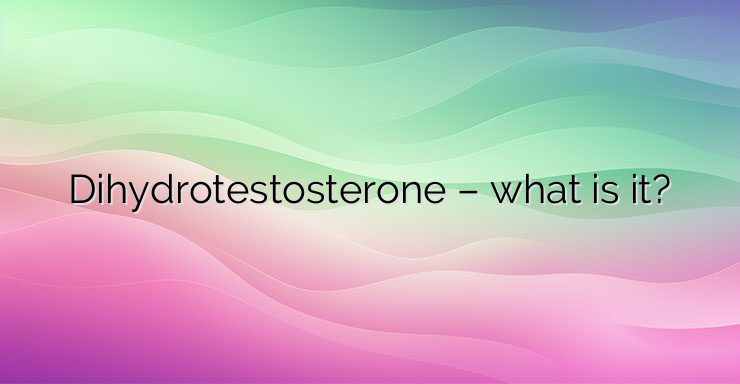What is dihydrotestosterone? Dihydrotestosterone is a hormone that stimulates the development of male characteristics. Almost 10% of the testosterone produced by men each day is converted to dihydrotestosterone by the testes and prostate (in men), the ovaries (in women), the skin and other parts of the body. It is believed that an increase in the production of dihydrotestosterone may be the cause of the onset of puberty in boys, which leads to the development of the genitals (penis, testicles and scrotum) and increased hair growth. How is dihydrotestosterone controlled? The amount of dihydrotestosterone present in the body depends on the amount of testosterone available. When testosterone levels increase, more of it is converted to dihydrotestosterone, which also increases in parallel. Thus, control of dihydrotestosterone levels in the body is achieved by controlling the production of testosterone, which in turn depends on the hypothalamus and pituitary gland. In response to declining testosterone levels, the hypothalamus releases gonadotropin-releasing hormone that travels to the pituitary gland, stimulating it to produce and release luteinizing hormone into the bloodstream. Luteinizing hormone in the blood then travels to the Leydig cells in the testes in men and stimulates them to produce more testosterone. Thus, testosterone in the blood increases, and a large part of it is also converted into dihydrotestosterone. NEWS_MORE_BOX What happens if we have too much dihydrotestosterone? Too much dihydrotestosterone, which is often the result of excess testosterone production, has different effects on men and women. Dihydrotestosterone levels are unlikely to be elevated before the onset of puberty. However, in women with too much dihydrotestosterone, it can cause increased body, facial and pubic hair (called hirsutism), the cessation of the menstrual cycle (amenorrhea) and increased acne. What happens if we have too little dihydrotestosterone? Deficiency of dihydrotestosterone is thought to have fewer effects in women. However, it is possible that the onset of puberty will be delayed in girls with too little dihydrotestosterone, and that hair growth will forever remain less than usual for a woman. Conversely, low dihydrotestosterone levels in men can have dramatic effects. If there is too little dihydrotestosterone while male fetuses are still in the womb, they may be born with indistinct genitalia that appear to have more female characteristics. Later, boys with too little dihydrotestosterone may undergo some of the changes normally seen in puberty (such as muscle growth and sperm production), but do not have normal hair growth or normal genital development.


Leave a Reply